Milk is fast disappearing from daily diets in many Nigerian homes. Juliet Jacob, explores how rising inflation, shrinking incomes, high import costs, and changing food priorities have forced millions of Nigerians to abandon milk and infant formula.
Milk now Luxury
Milk, once a basic component of Nigerian household nutrition, is fast becoming a luxury few can afford. Across the country, economic pressure is forcing families to drop milk and infant formula from their daily diets.
Once considered essential, especially for children and nursing mothers, these items are now out of reach for many, with grave implications for public health. Prices have more than doubled in recent months, driven by inflation, foreign exchange instability, and rising import duties.
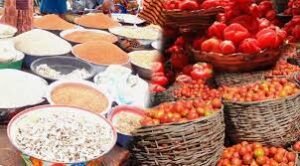
As incomes stagnate and poverty deepens, parents are turning to less nutritious substitutes—such as pap, garri water, or diluted beverages—to fill the gap.
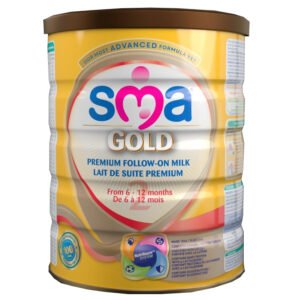
A Nation Malnourished: UNICEF Sounds the Alarm
According to the United Nations Children’s Fund (UNICEF), Nigeria ranks second globally in the number of children suffering from stunted growth.
Nearly one in three Nigerian children under five is affected. Even more alarming, an estimated 2 million children suffer from Severe Acute Malnutrition (SAM), yet only 20% receive treatment. Seven percent of Nigerian women of childbearing age are also malnourished, reflecting a broader crisis.
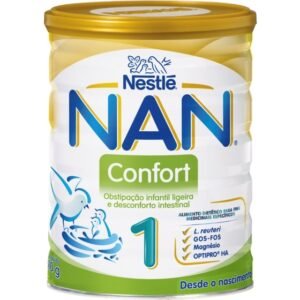
“Malnutrition is not merely a hunger problem — it’s about nutrient quality,” explains a public health physician and former senior health policy advisor, Dr. Adaeze Oreh.
“And dairy products are among the best sources of micronutrients for early development.”
Milk Intake Below Global Recommendations
At this year’s World Milk Day celebration in Abuja, the Minister of Livestock Development, Idi Mukhtar Maiha, painted a bleak picture of Nigeria’s dairy sector.
The country produces just 600,000 metric tonnes of milk annually, satisfying only 35% of national demand. The rest — about 1.1 million tonnes — is imported at a cost exceeding $1.5 billion.
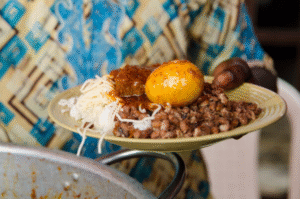
“While the World Health Organization recommends a minimum of 10 litres of milk per person per year, Nigeria averages just 8.7 litres — well below the African average of 40 litres,” Maiha stated.
He attributed the poor numbers to low-yield indigenous cattle breeds, inadequate veterinary infrastructure, and insufficient investment. Maiha pointed to countries like India and South Africa as examples of successful dairy reform.
Formula Prices Hit the Roof, Families Cut Back
Infant formula brands such as NAN, SMA Gold, Similac, and Lactogen — indispensable for many mothers who cannot breastfeed — have witnessed price hikes of over 100% in some states. A 400g tin of formula that once sold for ₦5,000 now costs as much as ₦13,000.
NAFDAC affirmed in a statement that while the agency promotes exclusive breastfeeding for the first six months, it also recognizes that formula is a necessary alternative for many.
“Safety standards are closely monitored,” NAFDAC, “but affordability is fast becoming a barrier.”
Economic Hardship Forces Nigerians to Drop Dairy Staples
Africa Health Report (AHR) findings show that rising inflation, dwindling incomes, and surging import costs have pushed milk and infant formula beyond the reach of millions of Nigerian households. Once a common part of daily nutrition, these dairy products are now seen as luxuries.
Families grappling with the high cost of living have been forced to reprioritize spending, with many opting for cheaper, less nutritious alternatives. The impact is especially severe for infants and young children, as access to vital nutrients like calcium and protein becomes increasingly limited due to unaffordability.
Import-dependent and priced in foreign currency, most milk and formula brands have seen their costs double or triple in recent years. Combined with a volatile exchange rate and persistent food inflation, even middle-class Nigerians are cutting back.
Many mothers have turned to traditional substitutes or rely more on carbohydrate-heavy diets, raising concerns among health experts about rising cases of malnutrition. As economic conditions worsen, the gap between nutritional needs and food access continues to widen across the country.
Mothers Speak: “We’re Struggling to Feed Our Babies”
For many Nigerian mothers, feeding their babies is now a monthly financial gamble.
“I spend about ₦60,000 every month on NAN for my baby,” said Ada Obi, a civil servant and first-time mother. “It’s a strain. The price keeps going up, and we can’t keep up.”
Sarah Alabi, a Lagos-based trader, echoed the sentiment. “I use Lactogen. It jumped from ₦6,000 to over ₦12,000 per tin in less than a year. We’ve had to cut back on other household expenses.”
For Joyce, a mother of twins, the cost is doubled: “I spend ₦52,000 monthly, and I’m always anxious that I won’t have enough next month.”
Mr. Edward:
“I’m a resident of Abuja, and honestly, I can’t even remember the last time my family and I had tea because of how expensive milk has become. My daughter used to love tea, but she had to stop drinking it because we simply can’t afford milk anymore. I’d rather give my wife the money to buy foodstuffs that will last than spend it on tea that finishes quickly.”
Mummy Bella:
“I stopped taking tea since the price of milk skyrocketed. I don’t drink tea as often as I used to. Now, if I must have it, I go for the small sachets and try to manage it with my family, since that’s the only affordable option.”
Health Experts Warn of Long-Term Impact
A pediatric nutrition specialist at Lifeline Children’s Hospital in Abuja, Dr. Amina Yusuf warns that the consequences of this crisis may not be immediately visible — but they will be long-lasting.
“Even middle-class families are now compromising on nutrition,” Dr. Yusuf told Africa Health Report. “Exclusive breastfeeding is ideal, but many mothers face medical or occupational barriers. In such cases, affordable, safe formula should be a basic right.”
She emphasized the need for families to be educated on safe, locally available alternatives like fortified pap, millet, and soy-based foods after six months of age.
Retailers Feel the Pinch
Retailers, too, are feeling the effects of inflation and currency devaluation. At several pharmacies and supermarkets in Abuja and Lagos, store owners reported plummeting sales of milk and infant formula.
“Customers come in, ask for formula, and leave when they hear the price,” said Mrs Ruth, a pharmacist in Abuja. “Some now request half-tins or mix formula with pap — which is risky.”
Mrs. Kemi Oladun, who manages a supermarket in Surulere, noted that products like Peak 456 and Dano Milk no longer move off shelves as they used to. “People are prioritizing staple food. Milk is now a luxury,” she said.
Why Is Milk So Expensive?
A complex web of factors has driven up milk prices. Nigeria’s heavy dependence on imports means local prices are vulnerable to global shocks — including shipping costs, currency depreciation, and international supply chain disruptions.
Even locally processed milk relies on imported components like milk powder, emulsifiers, and vitamins. High electricity tariffs, fuel price hikes, and bad roads add to production and distribution costs.
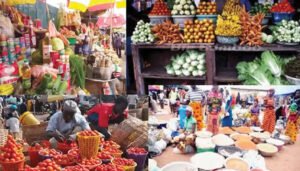
A food economist at the University of Abuja, Dr. Aisha Ibrahim summarized it succinctly: “Until Nigeria builds a self-sustaining dairy industry, milk will remain out of reach for most.”
Consequences of Cutting Milk: A Nutritional Time Bomb
Milk provides key nutrients such as calcium, vitamin D, iodine, and high-quality protein, all of which support bone strength, brain development, and immune function. Its absence — particularly in a child’s early years — can result in stunted growth, cognitive delays, and increased vulnerability to disease.
Improper substitutes like over-diluted formula, pap, or adult milk can cause malnutrition or, in extreme cases, infant death.
“The dangers are real and already happening in slums and rural areas,” warned Dr. Chidinma Nwosu, a nutritionist with Médecins Sans Frontières. “We’re seeing more children with wasting and recurrent infections.”
Policy Solutions: What Can Be Done?
Experts and stakeholders argue that a national strategy to boost dairy self-sufficiency is long overdue. This would involve genetic improvement of local cattle, investment in cold chain logistics, and subsidies for local producers.
Equally important is public health education. “We must teach families how to use local, affordable, and safe alternatives effectively,” said Prof. Chukwuebuka Ibe.
There are also calls for the government to subsidize formula for low-income families, especially in conflict-affected and rural areas, while encouraging exclusive breastfeeding through workplace support and maternity benefits.
A Generation at Risk
Nigeria’s milk and formula crisis is not just about food — it’s about the survival and future of the next generation. As prices rise and access declines, millions of children risk growing up stunted, both mentally and physically, through no fault of their own.
The time to act is now. Without bold interventions, Nigeria could face a nutrition emergency that will cripple its human capital for decades to come. Every child deserves a fair shot at life — and that begins with a full stomach and the right nutrients.



